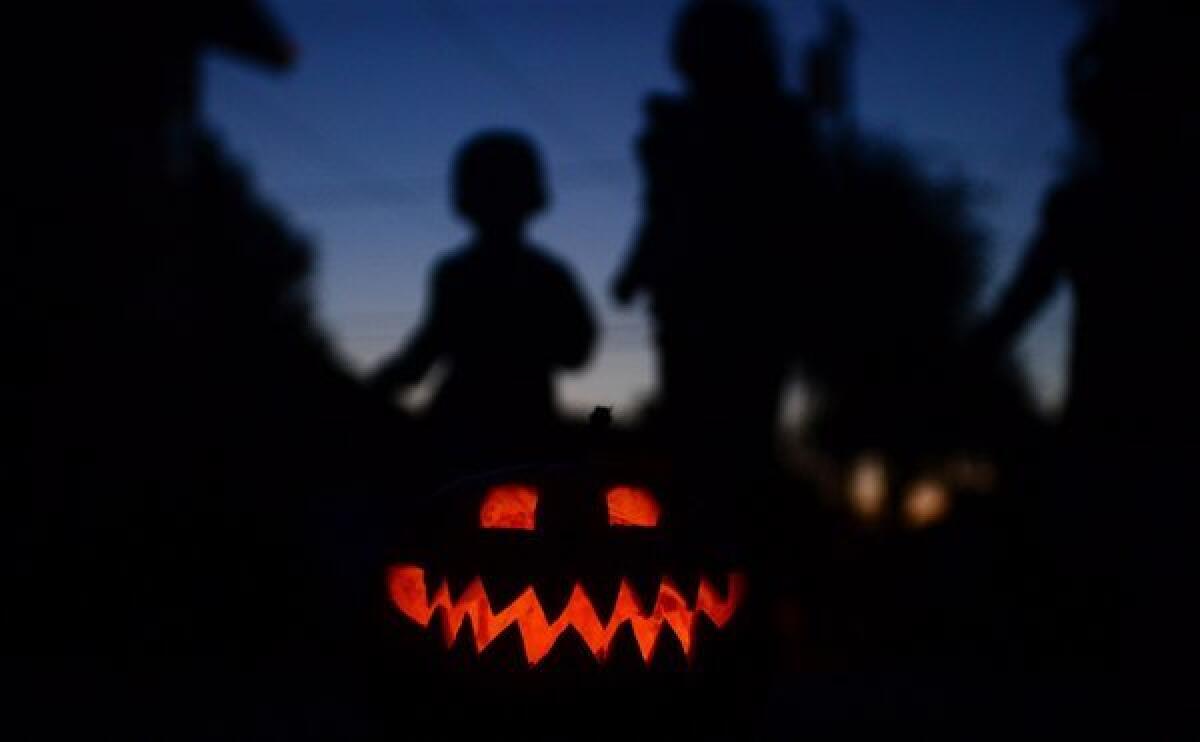Halloween: Is your costume racist? Where’s the line?

Julianne Hough, a white actress, darkens her gorgeous mug, dresses up as a black TV character she admires, and apologizes after she is subjected to an Internet backlash.
Some white idiots in Italy put on blackface for a fashion industry Halloween party.
A couple of numbskulls in Florida dress up as the slain Trayvon Martin and his killer, George Zimmerman.
An Asian American civil rights group complains about two Asian-themed costumes sold by Pottery Barn, which withdraws the items and apologizes.
Suddenly, the tired discussion about the oversexualization of Halloween costumes shifts into a much more interesting and treacherous gear: When is a Halloween costume racist? When is it tasteless? And why does it matter? Isn’t this a day that allows us to confront our deepest fears and most violent impulses in a safe, ritualized way?
Time magazine calls the tangle over Halloween costumes the “offensive offensive.”
“Halloween is like Christmas for racists,” writes Dave Schilling of Vice, “because it’s an easy way to cloak bigotry in the guise of fun.”
Who gets to draw the line, though?
No one should defend the photos of grown white men at a Milan fashion industry party who painted their faces black with grotesque, oversized white lips. (Granted, Italy is not bedeviled by the legacy of slavery. It’s still racism.)
And that Trayvon Martin/George Zimmerman get-up, which featured a white kid in blackface wearing a “blood”-stained hoodie, and a second white guy with a “Neighborhood Watch” T-shirt, was disgusting.
But when Hough dressed up last week as “Crazy Eyes,” the breakout “Orange is the New Black” character played by actress Uzo Aduba, she was celebrating, not denigrating, the character. Hough may have been clueless about the racial freight attached to masquerading as a black woman, but that’s not racism; it’s insensitivity. I think she gets a pass.
When Pottery Barn announced earlier this week it was pulling those two Asian costumes — a sushi chef’s coat and a long, red kimono costumes — I have to admit some surprise at the idea that merely mimicking another culture is evidence of racial or ethnic insensitivity.
“It’s not that ethnic dress is offensive,” Ling Woo Liu of Asian Americans Advancing Justice told my colleague Anh Do. “What we find problematic is packaging this type of dress as a costume. Asian Americans and Pacific Islanders are real people who cannot and should not be commodified as costumes.”
Is a generic cowboy costume OK, but a generic Indian problematic? What about dressing up as a historical figure like Pocahontas? What if a white kid dresses up as the Rev. Martin Luther King Jr.? Or a black kid dresses up as Abraham Lincoln? Does intention make a difference?
Just thinking about all this makes my head spin. I long for the uncomplicated days of witches, vampires and ghosts. But then, of course, with ghosts, you get into the whole white-sheet-over-the-head discussion.
I think I need some candy.
ALSO:
Sriracha fight: Irwindale officials not backing down after ruling
Third set of human remains found at Carson water treatment plant
New drug tunnel linking Tijuana, San Diego is found, authorities say
Twitter: @robinabcarian
More to Read
Sign up for Essential California
The most important California stories and recommendations in your inbox every morning.
You may occasionally receive promotional content from the Los Angeles Times.











